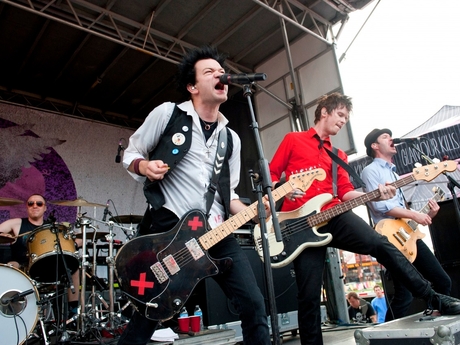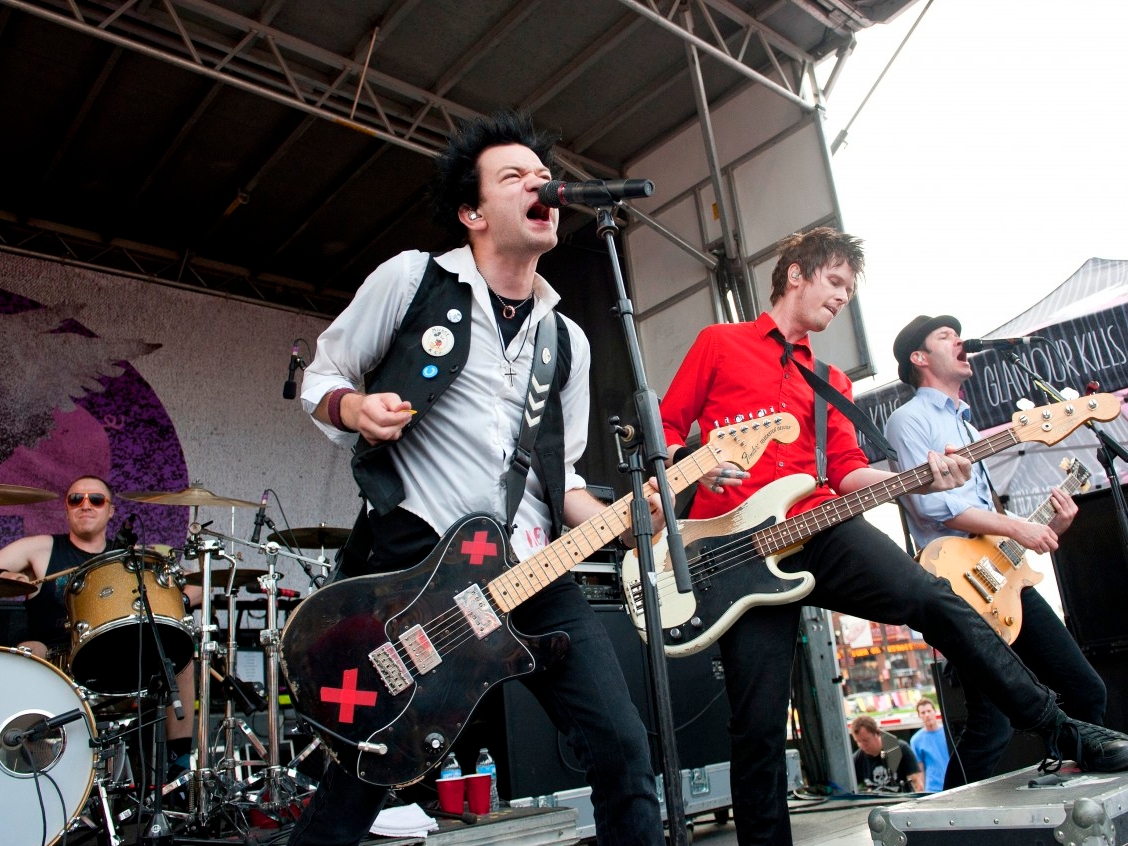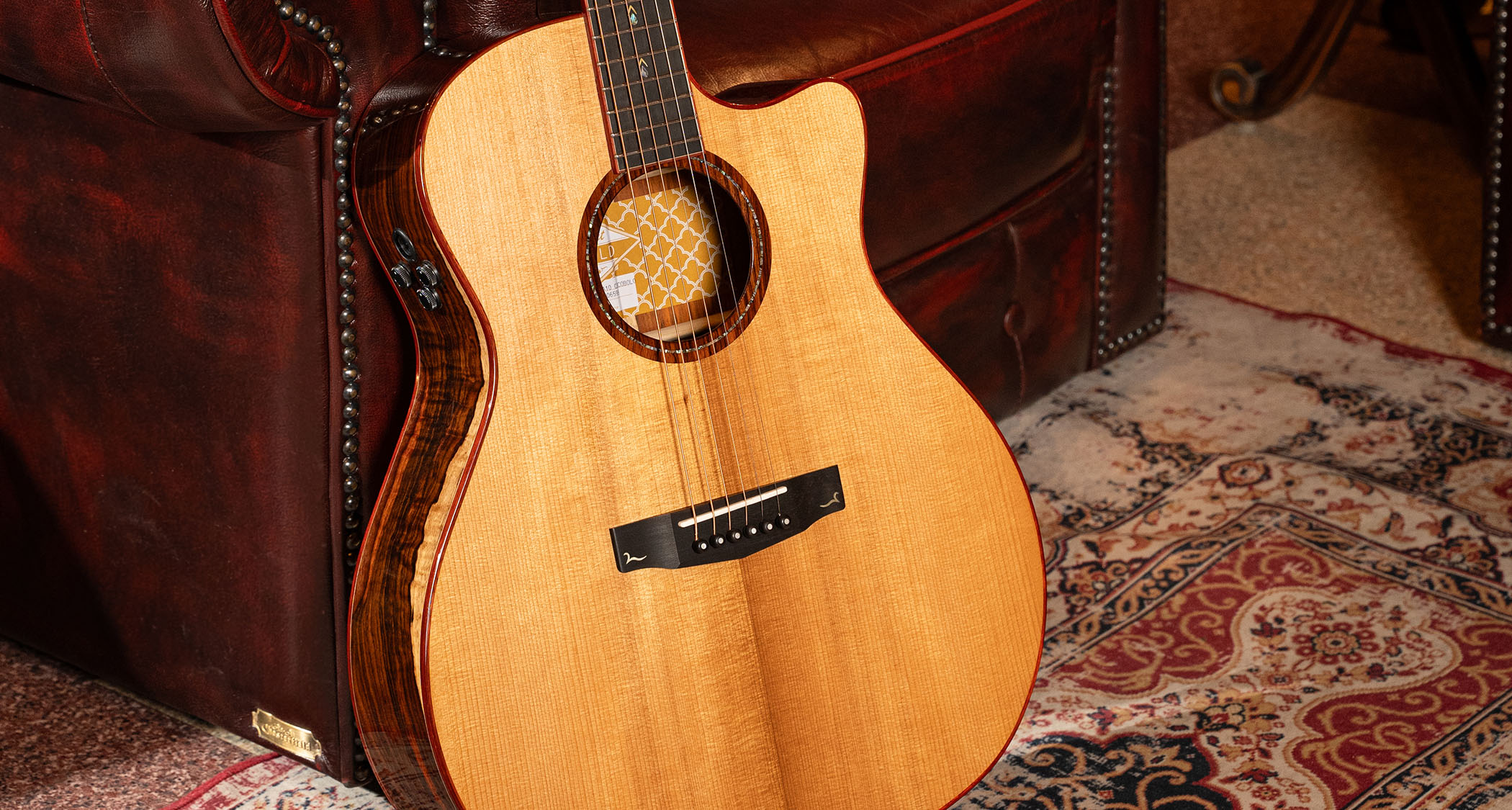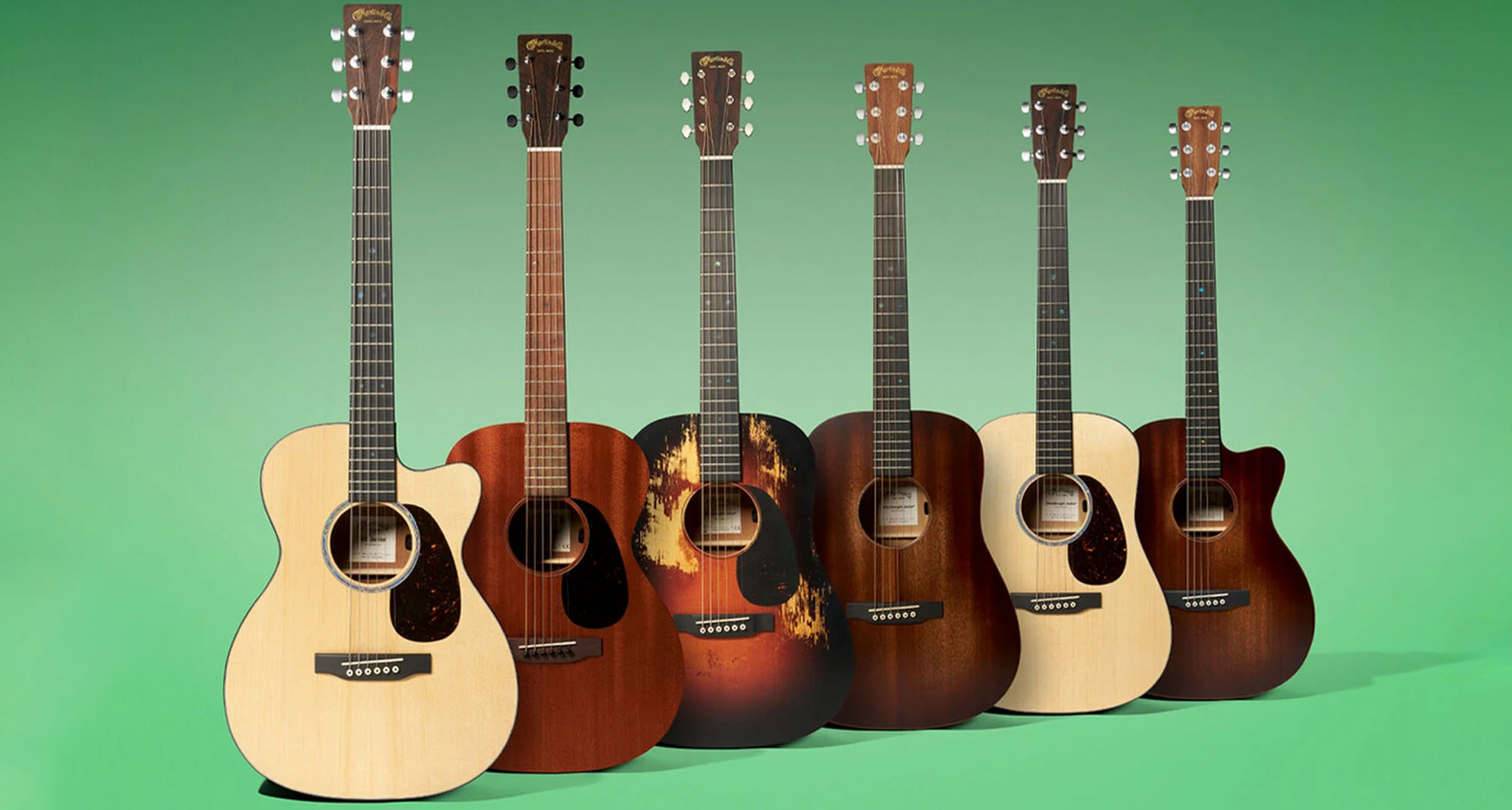John Lennon: Sum 41 interview
Deryck Whibley on Lennon's masterful songwriting, politics and 'I Am The Walrus'


© Chris Schwegler ./Retna Ltd./Corbis
Deryck Whibley has spent the last decade penning hook-filled pop punk tunes with Canadian upstarts Sum 41. TG sat down with the guitarist/frontman to find out how John Lennon taught him all about melody, writing without fear and how you can "just play four chords but make it rock"…
Words: Rich Chamberlain
What does John Lennon mean to you?
"He's one of my favourites. His ability to express an emotion or a feeling… he's almost the best at it. Even just talking in interviews, he had an amazing ability to influence and create a feeling in people."
When were you first introduced to him and his music?
"The Beatles are my first memory of hearing any kind of music. My parents listened to them, I got into them and they stayed with me. I got into Lennon through The Beatles but I'm equally or even more of a fan of his solo stuff."
Get the MusicRadar Newsletter
Want all the hottest music and gear news, reviews, deals, features and more, direct to your inbox? Sign up here.
Do you have a favourite Lennon song from a guitarist's perspective?
"I love 'In My Life', I love the little guitar lick. My favourite guitar Lennon song, though, is 'Yer Blues'. It rocks. It was a great blues rock song for them at that time. I love that guitar riff."
Did Lennon have any influence on Sum 41's take on writing pop hooks?
"I'd say a lot of the harmony and writing melodic songs came from being a fan of The Beatles when I was younger. When I was growing up learning to play guitar they were one of my favourite bands. I was influenced not so much by the style of music but by the harmonies and I guess the catchy songs came from that."
Lennon's writing style was fearless
If he was still around today, what direction do you think Lennon's music would have gone in?
"In the same kind of way as Bob Dylan where he's gone through so many styles. I'm sure he would have done something like that. I would assume he would have kept trying to push boundaries."
Has Lennon had any impact on your guitar playing style?
"It's mainly his songwriting. I've always been that kind of guitar player where a guitar to me is the instrument I use to write music. I'm more interested in writing than being a great guitar player. As well, he was one of the first people that I realised had a fearless style of writing where you don't hold back and, lyrically, you say what you mean and don't put any kind of hidden meaning - you just hit them over the head with it. "
A lot is made of Sum 41's metal roots, combined with pop and punk. Lennon influenced a spread of genres, too, so what do you identify with specifically in Lennon's music?
"I use the guitar to write music. I'm capable and able to play, but I was never interested in being the lead guitar player. I'm probably as good as he was at guitar, which is pretty good but not trying to be Eric Clapton or Slash. What I've always liked about my playing - and what I know about his playing, too - is that when I play and hit a chord I like the way it sounds, even though it's not doing anything that technical. Then when you hand it over to someone else to play the same chords I don't like the way they play it. He could just play four chords but make it rock. Those are my kind of guitar players. If you can move someone playing four chords, you've got something in your hands."
The power to stand out and be heard
Did Lennon's attitude to life and politics inspire you in any way?
"He had a lot of principles and he believed in what he believed in and felt strongly about. He really believed in what he stood for. As a band, we've always done what we wanted and said what we wanted to say."
Do you agree that in some ways Lennon's attitudes to authority and music were a pre-cursor to punk?
"He was in a time when a lot of people were standing out, just a lot of musicians weren't. It was the vibe of the time. He just happened to be one of the most famous musicians in the world."
Lennon was also noted for his often blasé approach to guitar playing and recording. What do you think of this 'warts and all' approach?
"In a way you can see it in our songs. The way we've written our new record is kind of haphazard, writing songs on a whim in five minutes. Before there was maybe too much thought [going] into it. Instead of writing when I had an idea, I'd sit down and try to write a song."
How do you think Lennon progressed as a songwriter throughout his career?
"Once he realised to be totally open, honest and he didn't give a f*** any more about what people thought, he really became great. He was always a great songwriter. 'I Am The Walrus' is great, but it's not him. That's the difference between The Beatles and his solo stuff, which were two completely different things, but they're equally as good. Now I'm more influenced by the solo stuff. Lyrically, it's opened me up to understanding the different styles of writing. A lot of his solo stuff went unappreciated. He didn't have big hits he just had great songs."
TG209 (on sale 26 November) features John Lennon on the cover and honours the working class guitar hero's contribution to the guitar world, including interviews with 'Nowhere Boy' Aaron Johnson and 'Imagine' session guitarist Joey Molland.
Matt is a freelance journalist who has spent the last decade interviewing musicians for the likes of Total Guitar, Guitarist, Guitar World, MusicRadar, NME.com, DJ Mag and Electronic Sound. In 2020, he launched CreativeMoney.co.uk, which aims to share the ideas that make creative lifestyles more sustainable. He plays guitar, but should not be allowed near your delay pedals.
“You're by far the best guy that we've tried. I would love to have you in the band”: So why did Trent Reznor turn down Richie Kotzen for Nine Inch Nails?
“I like guitars that don’t just appeal to metal players”: Jackson and Bring Me The Horizon’s Lee Malia team up for the Pro Series LM-87, a shreddable Surfcaster-style electric with a humbucker/P-90 pairing










